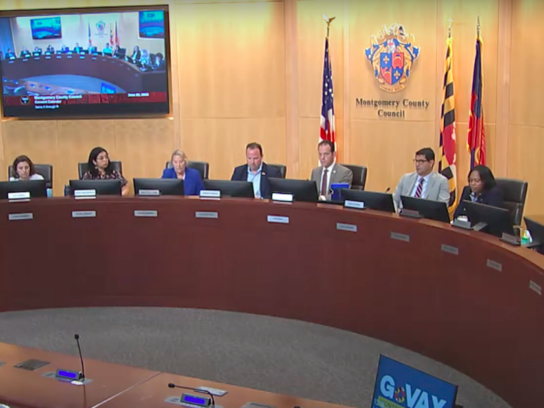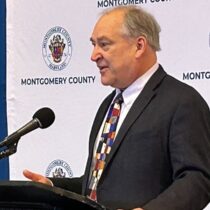
The Montgomery County Council voted to pass three bills Tuesday during their council session.
Affordable Housing in Places of Worship
The council approved a zoning measure that will allow houses of worship to build affordable housing on their land.
The legislation, sponsored by Councilmember Kate Stewart and President Andrew Friedson, will make it easier to build affordable housing and provide flexibility in development standards for multi-unit and townhouse living on places of worship and educational institutions.
“Partnering with faith-based and private educational institutions will unleash untapped resources and surplus land that we otherwise wouldn’t be able to access,” Stewart said.
Multi-unit living is not permitted in non-residential zones under current law. Now, qualifying institutions will be able to build housing on their land but must adhere to county guidelines saying at least 30% to 50% of the units must be allocated as “affordable dwelling units.”
The legislation marks a national movement, Yes in God’s Back Yard, that pushes for affordable housing options in religious buildings.
Takoma Park Master Plan
The council approved the Planning Board Draft of the Takoma Park Minor Master Plan Amendment with revisions.
The amendment updates the 2000 Takoma Park Master Plan — a comprehensive guide for future development that aims to improve the quality of life while preserving local character. It re-envisions a section of the city that includes the Washington Adventist Hospital and University campuses, the Erie Center and the properties along Maple Avenue.
“The Takoma Park Minor Master Plan Amendment is a blueprint for making a great community even better and ensuring more people have access to it,” Council President Andrew Friedson said in a press release. “I’m proud of the work we’ve done.”
Hookah Lounge Operating Hours
The Montgomery County Council voted to enact legislation Tuesday that will restrict operating hours for hookah lounges, smoke and vape shops.
The late-night establishments, which can currently operate all night, are now required to close at 2 a.m. on weekdays and 3 a.m. on weekends. The new hours align with current operating hours for businesses that serve alcohol.
Stewart introduced the legislation in February following an uptick in crime in downtown Silver Spring. Calls for police have increased between 2 a.m. and 7 a.m., which has led to an excess in overtime expenditures for county police, Stewart said.
“Silver Spring is becoming the afterparty spot,” Stewart said. “This is having negative impacts on our residents, our other businesses and increasing the cost of public safety.”
But Councilmember Will Jawando said the legislation will disproportionately impact minority-owned businesses. He cast the sole vote against the bill and introduced an amendment that would give hookah lounges one day of extended hours per week, but it failed.
“I’m concerned that this bill will put small businesses, mostly, if not all Black and immigrant, out of business,” Jawando said. “I don’t think that’s something the government should do — determine winners and losers.”

